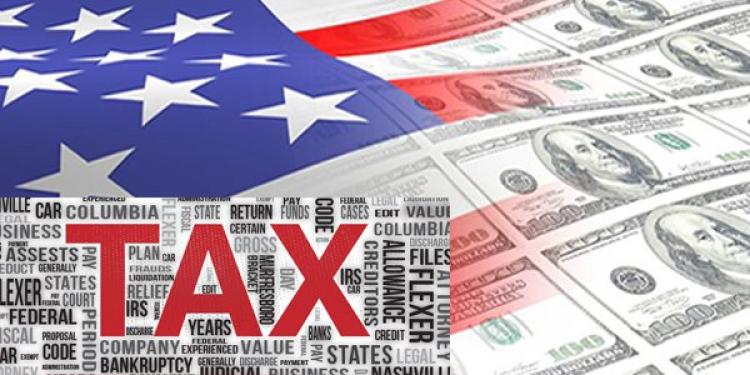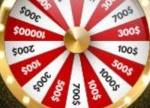Why Gambling Winnings are Taxed in the US but not Canada
Posted: May 7, 2014
Updated: October 4, 2017

US offers a promising gambling experience but comes with a price, while Canada offers less but doesn’t take away winnings.
Gambling has been a popular activity for centuries across the globe. However, since the modernization of society, some nations have adopted certain laws pertaining to gambling.
The US imposes certain restrictions on players, which effectively dampens the overall experience for regular gamblers. Even though one may be a winner, he is still a little bit of a loser, as he stands to give away a portion of his winnings to the tax man.
Canadian players on the other hand, can play all they want and remain complete possession of their gaming earnings, as taxes do not apply to prize money earned through games of chance.
Gambling in the US
Gambling in the US is generally viewed in the negative light, as many Americans will agree with one another that participating in such an activity is unsavory.
Nevertheless, there are plenty of people in the US that like to gamble, regardless of what the contemporary perception is. However, when a gambler goes into a gambling institution and manages to win some money, he is liable to pay taxes on his winnings, as dictated by the US gambling laws.
• Winnings in US taxed, but experience is worth it
• Winnings in Canada not taxed, but overall experience is lower
• Non-residents of US are sometimes exempt from paying tax
Although there is a tax, one can view it as an expense for receiving some premium benefits. It is an unwritten law that every serious gambler should visit and, more importantly, partake in games in the world’s “Gambling Mecca” known as Las Vegas.
Casinos and institutions alike are obliged to charge players 30 percent or more on their winnings. Sometimes the percentages may exceed 30 percent, depending on a number of factors.
In addition, according to the Internal Revenue Service (IRS), virtually all gambling winnings are taxable. Lotteries, raffles, casinos, mobile betting firms, horse and dog races and any other kinds of gambling activities fall under taxation obligations, if one is fortunate enough to win something.
Players must maintain an accurate record of all their winnings and losses throughout the year, by filling the appropriate forms. Otherwise they may be liable to certain penalties, if they are found of breaching specific regulations.
Gambling in Canada
Whether one is betting on sports events, casino games or other forms of gambling, winnings are not taxed by the Canadian law.
Winnings that are obtained from online gambling sites in Canada are never taxed. However, when it comes to poker, there is an exception. If one is professional poker player, one will have to report his prize money to the proper authorities.
Games of chance are not viewed as proper means to make an income, while poker holds a certain view that skill is more involved in the concept of the game, than chance or luck. But then again, proving that one is a pro poker player is quite tricky, so the law is murky when it comes to this.
Non-Canadian residents are also not liable to pay taxes on their winnings, and are entitled to keep their prize money form gambling activities. However, US players that are looking to cross the border to gamble, in hopes to reserve the right to keep the winnings would be wrong.
US residents have it hard, as they have to pay tax on winnings, regardless where they won the prize money. Therefore, even playing in Canada, US players will still have to give away part of their gambling income to the IRS.
Exceptions to the tax law
When non-US residents decide to visit the States and try their luck in the gaming world, some players are destined to win money, and for that, special rules may apply for them at certain times.
If an alien resident or foreigner were to have success in a casino in the US, then his winnings would automatically be taxed by the IRS. However, there are ways to get the money back, but it involves going through a highly complex process that requires additional time and money.
Hiring or consulting with an expert in the field that knows the ins and outs of the matter is advisable, but then again these individuals or firms impose a percentage on getting back one’s winnings for them.
Additionally, one has to first obtain a so-called non-resident ITIN (Individual Taxpayer Identification Number), with which one can start the procedure and attempt to get the winnings back.
Not only that, but the IRS does not allow any individual to initiate the move without an authorized Certifying Acceptance Agent, who is tasked with handling all the business on a player’s behalf.
Therefore, the entire trouble is not worth the hassle concerned with US gambling laws, unless there are millions involved. It is advisable to just relinquish the efforts and accept the 70% of the winnings.
When it comes down to it, gambling the US may very well prove to be an unforgettable gambling experience, however it comes with a price for providing the premium service.
While Canada should be viewed as the long-term gambling solution. Players are allowed to retain all of their winnings, which means that each time one wins he is able to keep 30% or more, than he would have if he had gambled in the US.
However, if a non-Us resident has the means and the patience to follow through with the procedure of getting his money back, then playing in the US would be a win-win.












